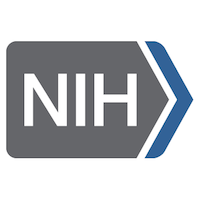UNC Nutrition Research Institute (NRI) researchers were invited participants in the virtual Precision Nutrition: Research Gaps and Opportunities Workshop held by the National Institutes of Health (co-sponsors: National Heart, Lung, and Blood Institute (NHLBI), National Institute of Diabetes and Digestive and Kidney Diseases (NIDDK), and National Institutes of Health (NIH) Office of Disease Prevention (ODP)) on January 11 and 12, 2021.
The workshop brought together scientists from diverse fields to address the complex factors of precision nutrition, a field of study designed to optimize metabolic response in individuals or population subgroups through tailored dietary approaches to promote health and prevent and treat disease. Precision nutrition is the cornerstone of the NRI’s research, and this workshop provided NRI scientists an international forum to share and discuss the latest discoveries and developments from our labs.
NRI principal investigator Saroja Voruganti, Ph.D., was an invited panelist at the workshop. With her co-panelists, she discussed research gaps and opportunities in precision nutrition, including the factors that affect how people respond to diet. These factors include sleep, taste, smell, environmental exposures, ethnicity and health disparities along with genetics, epigenetics and microbiome. They discussed how these factors can be used to properly predict a person’s response to diet. Knowledge of these factors will help to individualize nutritional interventions and recommendations that can help lower the risk for chronic diseases.
Additionally, three members of the NRI’s research team were selected to present posters on their current precision nutrition projects at the workshop and were selected to receive poster awards during the workshop. These abstracts were solicited from next-generation researchers in precision nutrition, representing Early Stage Investigators, as well as doctoral and postdoctoral students.
From the Zeisel Lab, Isis Trujillo-Gonzalez, PhD, presented a poster focused on the molecular mechanisms of maternal choline intake and fetal brain development. “I was very impressed by how fast this field is evolving and growing,” Trujillo said of her experience. “As a Latina researcher, I value the efforts of the NRI and the NIDKK to increase diversity in our research to truly build personalized nutrition.”
Evan Paules, a PhD student in the Zeisel Lab, was also selected to present. His poster focused on the consequences of low choline exposure on the developing cerebral cortex, focusing on the molecular mechanisms by which choline exerts its effects. Paules explained “the impact of choline on neurocognitive health and development has not been adequately characterized, and I am fortunate to be a part of building a stronger research collective for both choline research and precision nutrition.”
Emmanuel Baah, MD, MPH, a postdoctoral researcher in the NRI’s Human Research Core (HRC), also presented at the workshop. Baah’s poster focused on a Precision Nutrition (PN) course currently under development at the NRI that is designed to educate practicing physicians on how to use evidence-based molecular tools and algorithms for target nutrition guidance in everyday medical practice.
The NRI commends Voruganti, Baah, Paules, and Trujillo-Gonzalez on their accomplishments.

